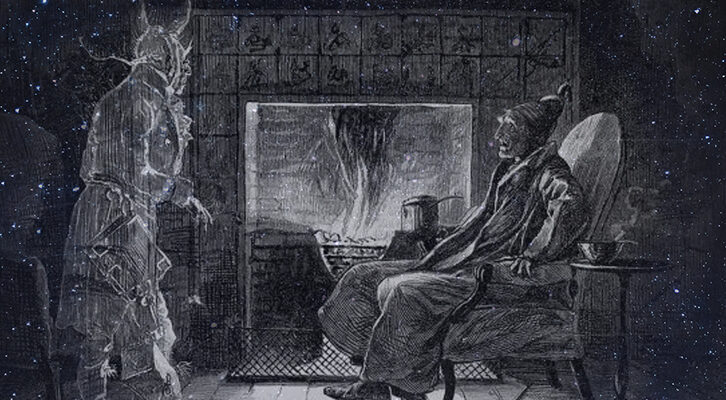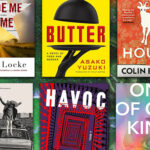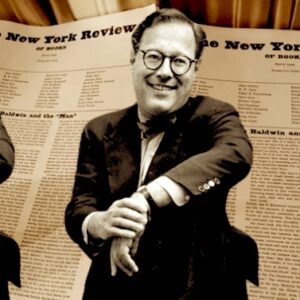On the Making of That New York Times Best Books of the Century List
Maris Kreizman Was One of 500 Participants Asked to Contribute
If best-of book lists are fun to argue about then New York Times’s list of the 100 Best Books of the 21st Century has already provided hours of entertainment. We’ve argued over the merits of individual books on the list, how the list reflects (or doesn’t) the current state of literature and criticism, and why there’s so little poetry on it. But let’s talk a little bit more about methodology
I was one of 503 participants—“novelists, nonfiction writers, poets, critics and other book lovers”—who contributed to the list by voting for our top ten books of the 21st century. Listen, I love a list and I love a good thought exercise and I was flattered to be asked. Later I would be disappointed that the Times didn’t list the names and occupations of all 503 of the contributors in the feature. It would have provided a fuller picture of who exactly the list was by and for.
We received some criteria from the Times but not much: our chosen books could be fiction or nonfiction, as long as they were published in the United States in English on or after Jan. 1, 2000. It was up to us individually to define what “best” means to us: “Brilliantly written? Utterly pleasurable? Powerfully important? Use your judgment.”
If you’re a real book lover you know that 10 slots to cover 24.5 years of books isn’t nearly enough to convey everything that’s wonderful.We were given a link to a new feature called The Book Review’s Best Books Since 2000 with a nice user interface to help us jog our memories of some of the books we may have loved. I am thankful that I still use Goodreads to track my reading (I know, I know) so that I wouldn’t need to rely on the TBR’s guidance to remember what I loved. So many of my favorites didn’t show up on the Times list at all (All My Puny Sorrows is a masterpiece).
And then we were off.
First I tried to define “best” in a way that felt right for me. I settled on the books that changed the way I viewed the world, or changed my idea of what a book can do or be.
If you’re a real book lover you know that 10 slots to cover 24.5 years of books isn’t nearly enough to convey everything that’s wonderful. So I created some of my own guidelines, namely that I wanted my list to be representative of what I, Maris Kreizman, read: mostly fiction, with some narrative nonfiction and essay writing thrown in.
Any time I make a list I’m thinking about diversity: diversity of tone, of gender, sexuality, race, and nationality, of publisher size (we need independent publisher representation always!), of genre. There are so many factors to consider.
I didn’t list any poetry collections because I’m not as avid a reader of poetry as I could be; I assumed that other participants would be less overwhelmed at choosing the best poetry of the past 24.5 years than I was.
Because only about 10 percent of my reading is books in translation, I only chose one translated novel for my ballot: When We Cease To Understand the World by Benjamin Labatut. But I easily could have added more. I’m still kicking myself for not voting for Mieko Kawakami or Jenny Erpenbeck when I had the chance.
I knew that certain books and authors simply wouldn’t need my help. The Remains of the Day by Kazuo Ishiguro would be fine. So would The Line of Beauty by Alan Hollinghurst. Elena Ferrante didn’t need me, although I didn’t realize exactly how much she wouldn’t need me until the list was published. I certainly couldn’t predict that all four of the Neapolitan novels would show up (the third one is clearly the best).
I erred when I thought Yaa Gyasi’s Homegoing didn’t need my help; it didn’t make the list. I also thought my inclusion of Teju Cole’s Open City would prove to be redundant, but that one didn’t make the list either. I had to discard some of my other favorite novels: Eat the Document by Dana Spiotta, Boy, Snow, Bird by Helen Oyeyemi, and Severance by Ling Ma.
I paused over 2023 and 2024 releases. It just felt too soon to tell which books did (or didn’t) make a lasting impact. It looks like other contributors felt the same way (unless 2023 and 2024 were both bad years for good books, which they weren’t) because no books from the past two years made the list.
It’s easy to get caught up in metrics with a big list like this, one that gets tons of engagement but doesn’t actually say very much. I was surprised that only blurbs for certain entries got bylines; the rest were generic summaries. I can’t help but feel that if every book entry had a byline, the entire thing would feel more like criticism and less like just content. It’s the New York Times! That Wordle money could have paid for a few more blurbs! That said, maybe making the Books section more gamified was the whole point.




















